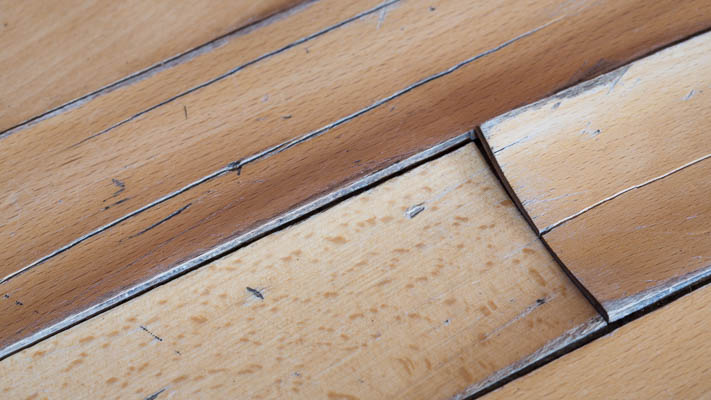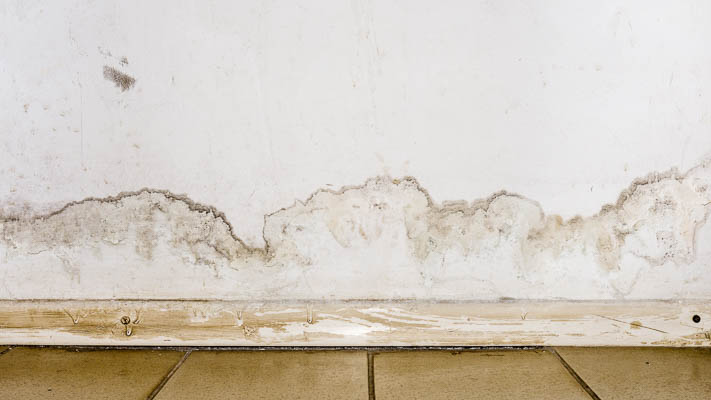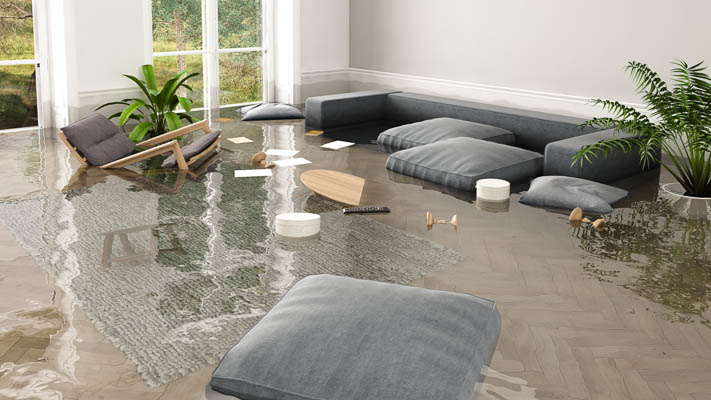How to Detect Water Leaks in Your House
Water leaks in a house can be hard to detect because they are often hidden from sight and may start as a very slow drip.
We have an article dedicated to why you should install a water leak detection system. However, if you're concerned about potential leaks in your home, here are two DIY-friendly methods to help you find those elusive leaks:
1) Pressure Test To Detect Leaks
A static water pressure test can help identify if you have a slow leak in your plumbing.
A static pressure test involves measuring your water pressure with all outlets fully closed. If your plumbing system has a leak, the water pressure will gradually drop over time.
Inexpensive pressure gauges are readily available at most hardware stores. You can attach these gauges to any of the following fixtures in your home:
- Outdoor hose spigots and hose bibs
- The supply connection to your washing machine
- The drain at the bottom of your hot water heater
If the pressure remains constant for 10 to 15 minutes, you likely don't have a leak. The longer you run the test, the more certain you can be.
If you do notice a drop in pressure, check all your outlets carefully to be sure you don't simply have an outlet dripping. For example, toilets are a common source of very slow "leaks" (tip: try adding some food coloring to your toilet tanks to see if there is a leak between the tank and the bowl).
Slow drips from outdoor hose bibs or landscape irrigation systems can also cause pressure drops. For more information, you can read our article on the common causes of low water pressure.
2) Water Meter Flow Test To Detect Leaks
Another way to detect a hidden water leak is by monitoring your water meter. Similar to the pressure test, start by closing all water outlets in your home. Instead of checking for a pressure drop, you'll be looking to see if the water meter shows any flow with all outlets shut.
After closing all outlets, find your water meter and record the current reading. Wait at least 30 minutes without using any water, and then take another reading.
If the meter reading hasn't changed, then you likely don't have a significant leak. Keep in mind that water meters measure usage in gallons or cubic feet, so a slow drip might not move the dial much in just 30 minutes.

Even a slow leak can cause significant damage over time left undetected. A slow drip in a hidden area, like a wall cavity, can create conditions that lead to mold and rot.
Get your free estimate today
With over 75,000 repipes completed, we've perfected our One-Stop Repipe™ for your home.
How to Find the Location of a Water Leak
Visual Signs of Hard To Detect Leaks
If a pressure test or water meter test suggests you might have a leak in your plumbing, the next step is to pinpoint the exact location of the leak.
Carefully inspect hidden areas in your home, such as inside or behind cabinets, behind appliances (like refrigerators with water line connections), in closets, under rugs and carpets, as well as in attics and crawlspaces.

Look for any signs of moisture: discolored walls, bubbling paint, or musty smells. If you think the leak might be in or under a slab foundation, check out our article on the signs of a leak under a slab.
Contact a Leak Detection Specialist
If you still can't confidently rule out the possibility of a leak or can't locate it, your next step should be to contact a leak detection specialist.
Leak detection specialists use advanced equipment to find leaks. We recommend hiring a specialist rather than a plumber, as they focus solely on detection and won't have a bias to "find" a leak just to secure a repair job.
Here are two leak detection specialist companies we often recommend that have local branches in most markets across the USA:
What to Do If You Have a Water Leak
Water leaks can cause serious damage to your home if not addressed quickly, so it's crucial to act as soon as you discover one.
If you have identified the source of the water leak in your home, turn off the water supply to prevent further damage.
It's important to determine whether the leak is a localized issue or a systemic issue. Localized issues can often be resolved by repairing a specific component, such as fixing a slow leak in a washing machine's shut-off valve or the supply line to a refrigerator.
Systemic plumbing issues, however, may require a full home repipe to permanently and cost-effectively address water leak problems. These issues can include outdated CPVC piping, old polybutylene pipes, leaks under slabs, pinhole copper leaks, or failing galvanized plumbing.
Document any damage caused by the water leak by taking pictures or videos. This can be helpful if you need to file an insurance claim or prove the extent of the damage. We cover types of water damage coverage by homeowners insurance here.
A full home repipe will ensure the integrity and longevity of your plumbing for many years to come. Most systemic issues cannot be fixed with just a one-off repair. If a water leak has occurred once, it's likely to occur again.
Our One-Stop Repipe™ Process can be completed in just 1-2 days and comes with a lifetime warranty. We also offer a range of Repipe Financing Programs to take the sting out of any unplanned leak repair expenses. Schedule a free in home consultation today.
Get a Quote for Repiping Your Home
Here at Repipe Specialists, we've fully replaced the plumbing in over 75,000 homes since 1991 using both copper piping and PEX tubing. We continually get positive customer feedback from customers about their overall home repipe experiences. We often exceed their expectations on:
- Speed: Our repipe crews typically complete a repipe in a day, returning on another day for wall patching.
- Convenience: Through our One-Stop Repipe™ process, we handle everything from permits, to wall patching, to inspections.
- Cleanliness: Our crews are trained to protect your home while working (we cover all surfaces with protective sheeting), and to clean up fully at the end of each day.
- Peace of Mind: Repipe Specialists is a fully licensed plumber in every state we operate in, and we back all of our repipes with a lifetime warranty.
- Financing programs: To help take the sting out of unplanned repipe expenses, we offer several financing programs.
- Price: As a specialist that performs hundreds of repipes a week, we can deliver high-quality repipes at a lower cost vs generalist plumbers. Our quotes typically range from $4,500 to $15,000 depending on the size and complexity of your project. We have an article that covers repipe cost factors in detail.
Schedule a free in-home consult, and one of our local repipe consultants will explain all your repipe options and provide you with a written, fixed-price quote.

